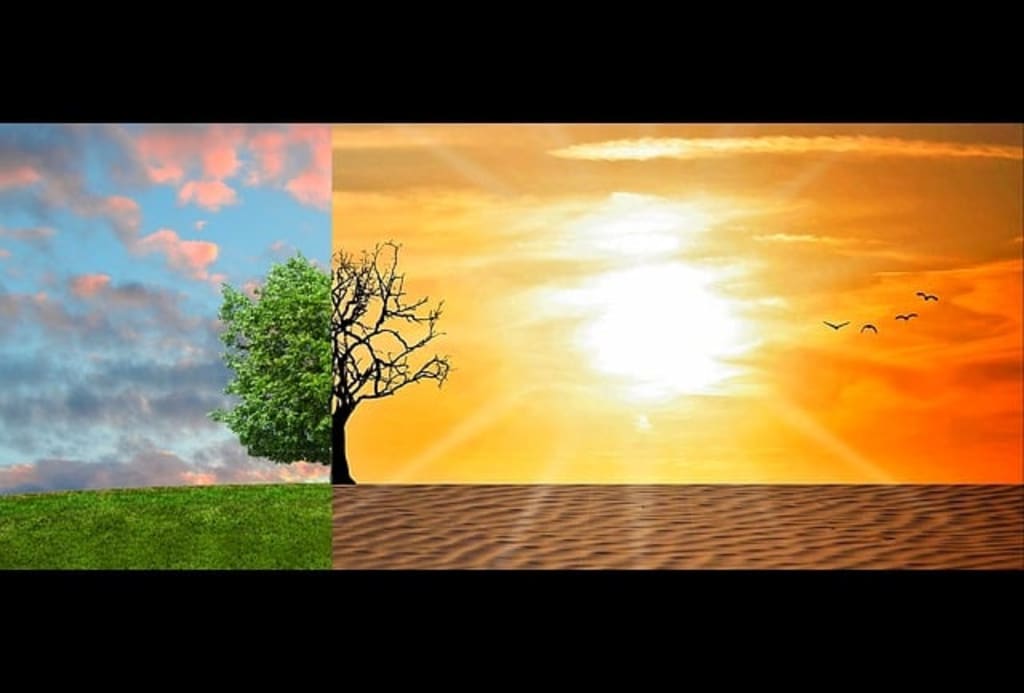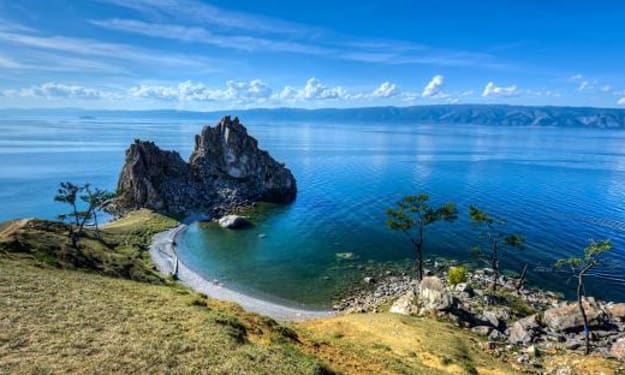
Climate change is a global phenomenon that is transforming our planet at an alarming rate. Driven primarily by human activities, such as burning fossil fuels and deforestation, climate change has far-reaching consequences for our environment, economies, and societies. This article explores the effects of climate change across various domains, shedding light on its impacts on ecosystems, weather patterns.
1-Disrupted Ecosystems:
Climate change is profoundly altering ecosystems worldwide. Rising temperatures, changing precipitation patterns, and increased frequency of extreme weather events disrupt natural habitats, leading to species extinction, shifts in migration patterns, and loss of biodiversity. Coral reefs, forests, and polar regions are particularly vulnerable. These changes can have cascading effects on the entire ecosystem, impacting food chains, water resources, and the overall functioning of natural systems.Here are some key effects of climate change on ecosystems:
- Habitat Loss and Fragmentation: Rising temperatures and changing precipitation patterns alter the distribution and availability of suitable habitats for many species. As a result, ecosystems become fragmented, and species are forced to migrate or face population decline or extinction. Iconic ecosystems such as coral reefs, tropical rainforests, and Arctic tundra are particularly vulnerable.
- Changes in Species Distribution and Phenology: Climate change is causing shifts in the distribution patterns and phenology (timing of biological events) of many species. Warmer temperatures prompt species to move to higher latitudes or elevations in search of suitable climates. This disrupts ecological interactions and can lead to imbalances within ecosystems. Changes in phenology, such as altered timing of migration, flowering, and hibernation, can also cause mismatches between species, affecting their reproductive success and survival.
- Ocean Acidification and Coral Bleaching: Increasing levels of carbon dioxide in the atmosphere not only contribute to global warming but also lead to ocean acidification. This acidification poses a severe threat to marine ecosystems, particularly coral reefs. Elevated levels of acidity hinder the ability of corals to build their skeletons, resulting in coral bleaching and eventual death. The loss of coral reefs not only impacts marine biodiversity but also affects the livelihoods of millions of people who rely on reefs for food and tourism.
2-Extreme Weather Events:
Extreme weather events are becoming more frequent and intense due to climate change. These events include heatwaves, droughts, floods, storms, and wildfires. Here are some key effects of extreme weather events:
- Heatwaves: Rising global temperatures contribute to more frequent and severe heatwaves. Heatwaves can have significant impacts on human health, leading to heat-related illnesses and deaths. Vulnerable populations, such as the elderly and children, are particularly at risk. Heatwaves also have economic consequences, affecting agricultural productivity, energy demand, and infrastructure.
- Droughts: Climate change influences precipitation patterns, resulting in more prolonged and severe droughts in some regions. Droughts can lead to water scarcity, reduced crop yields, and livestock losses, impacting food security and agricultural economies. They also increase the risk of wildfires, as dry conditions make vegetation more susceptible to ignition.
- Floods: Climate change contributes to more intense rainfall events, increasing the risk of flooding. Floods can cause widespread damage to infrastructure, homes, and agriculture. They disrupt transportation, contaminate water sources, and pose risks to public health through the spread of waterborne diseases. Coastal areas are particularly vulnerable to flooding due to rising sea levels and storm surges.
- Storms: Climate change amplifies the intensity of storms, including hurricanes, typhoons, and cyclones. These storms bring strong winds, heavy rainfall, and storm surges, resulting in widespread destruction and flooding. Coastal regions are at greater risk of storm-related damage, including erosion, coastal flooding, and infrastructure destruction. The frequency and intensity of Atlantic hurricanes have shown an increasing trend in recent years.
- Wildfires: Climate change contributes to drier conditions and longer fire seasons, increasing the risk of wildfires. Hotter temperatures and changes in precipitation patterns can lead to the drying of vegetation, creating fuel for fires. Wildfires have devastating impacts on ecosystems, destroy homes and infrastructure, and pose health risks due to smoke inhalation. They also exacerbate climate change by releasing large amounts of carbon dioxide into the atmosphere
3-Rising Sea Levels:
Rising sea levels are one of the most visible and concerning consequences of climate change. As global temperatures continue to rise, glaciers and ice sheets are melting at an accelerated rate, leading to an increase in the volume of water in the oceans. Here are the key effects of rising sea levels:
- Coastal Erosion: Rising sea levels contribute to increased coastal erosion, particularly in low-lying areas and areas with soft or erodible coastlines. As sea levels rise, waves and storm surges penetrate further inland, eroding beaches, cliffs, and dunes. This erosion threatens coastal infrastructure, including homes, businesses, and critical facilities. In some cases, entire communities may be at risk of being submerged or forced to relocate.
- Flooding and Inundation: Higher sea levels raise the baseline for storm surges and tidal floods, making coastal regions more susceptible to flooding. Even minor increases in sea levels can lead to more frequent and severe coastal flooding during storms. Low-lying coastal areas, including cities and islands, are particularly vulnerable. As a result, coastal communities may experience increased property damage, disruption of essential services, and displacement of residents.
- Saltwater Intrusion: Rising sea levels can also lead to saltwater intrusion into coastal aquifers and freshwater sources. As sea levels rise, saltwater infiltrates into groundwater reserves, making freshwater resources more saline and unusable for drinking, irrigation, and agriculture. This poses a significant threat to coastal communities and agricultural areas that rely on freshwater supplies.
- Loss of Coastal Habitats: Rising sea levels have detrimental impacts on coastal ecosystems, including salt marshes, mangroves, and estuaries. These habitats provide important breeding grounds for fish and wildlife, protect coastlines from erosion, and serve as buffers against storm surges. As sea levels rise, these habitats are increasingly at risk of being inundated, leading to habitat loss, reduced biodiversity, and ecosystem disruptions.
In the conclusion,The effects of climate change are extensive and multidimensional, with implications for ecosystems, weather patterns, human health, and socio-economic systems. Urgent and collective action is required to mitigate climate change by reducing greenhouse gas emissions, transitioning to renewable energy sources, conserving ecosystems, and building resilient communities. Additionally, adaptation strategies are needed to cope with the inevitable impacts of climate change, including implementing sustainable agriculture practices, enhancing infrastructure resilience, and prioritizing equitable and just solutions.
By understanding the effects of climate change, raising awareness, and taking decisive action, we can strive towards a sustainable future that protects the environment, safeguards human well-being, and ensures the long-term viability of our planet for.
About the Creator
lynda
I have always enjoyed writting and exploring new ideas.






Comments
There are no comments for this story
Be the first to respond and start the conversation.